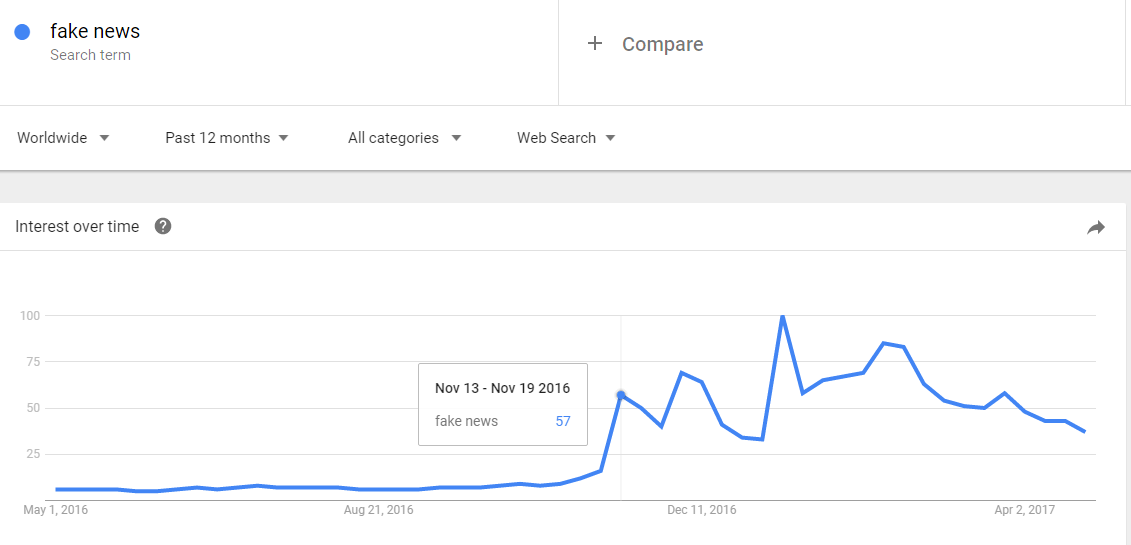Google has clandestinely stopped serving its TrueView discover ads within mobile search results or “related video” results on video watch pages within the YouTube network temporarily. Unfortunately for Google, these ads have been paused until better measures are implemented to prevent videos from being shown next to offensive and extremist content, which is an issue that has been plaguing its video advertising platform for months. As discussed in a previous blog post, the search engine giant is investing time and resources into deploying filters and feedback tools to identify objectionable content within organic search results, which is also known as Project Owl. However, the issue has become quite troublesome within the advertising spectrum, as major brands have scaled back spend, and in some cases, halted campaigns indefinitely with Google until the aforementioned issues are resolved and safeguards are implement to ensure brand protection. (more…)
Self-serve advertising tools are coming to Snapchat. Hallelujah!
When Snapchat’s parent company, Snap Inc., filed its initial public offering earlier this year, it was expected that the company would begin adding more business features to its Snapchat platform to entice small and medium sized businesses into spending money with the growing social media platform. Until now, companies that wanted to promote their products and services on Snapchat had to be willing to spend hundreds of thousands of dollars on Snapchat’s premium ad products or purchase media through one of their preferred advertising partners, causing angst among those of us that wanted to test campaigns on small budgets before ramping up digital spend. However, in a recent announcement, it appears that Snapchat will finally give us media buying wizards our wish by releasing a whole set of fancy new tools geared at onboarding more businesses into the advertising platform….and in the end, making more money to appease Snap Inc. investors.
Always looking to give advertisers extra capabilities to spend more money, Google has announced the rollout of similar audiences for search and shopping advertising campaigns. While the similar audiences feature has already been available within display campaigns for a while, Google has finally extended the targeting option to search and shopping campaigns, allowing advertisers flexible targeting options. Of course, targeting users based on keyword searches seems pretty direct, but it’s pretty difficult to weed out users that may not fit your ideal target audience. For example, one user searching for “buy health insurance” may be looking to signup for a plan on the spot, whereas another user searching for “buy health insurance” may be looking to get more information. With the ability to strengthen targeting capabilities by seeking out users similar to those who have previously converted via your website, search advertising campaigns will become far more effective.
Similar audiences for search advertising will allow businesses to create highly efficient audiences, as based on users who have previously visited their websites. RLSA, also known as remarketing lists for search advertising, gives you the flexibility to implement bid adjustment and/or solely target past site visitors. Unfortunately, it does have certain limitations if you don’t generate a lot of traffic and/or want to broaden your audience without spending too much on unqualified impressions. Similar audiences for search advertising adds another layer to your targeting, creating an ideal pool of potential leads and prospects to which you can market your products & services. Google did tease the feature in May of last year, but the company never divulged details as to when it would be rolled out for the masses and enabled within AdWords accounts. (more…)
From presidential candidates to the everyday Joe, it seems like the usage of “fake news” as a phrase has risen exponentially over the past year. Quick to dismiss disparaging reports, politicians from both major US political parties have been quick to levy attacks against others by using the “fake news” label to discredit the reputation of their opponents. However, while the usage of the term “fake news” only skyrocketed after Donal Trump assumed office (as exhibited below), social media platforms and search engines have been infected (for lack of a better term) with misleading content for years now, with agenda-driven websites pumping out content to mislead followers.

While it may be difficult to corroborate the authenticity of content published within social media circles and indexed on search engines, tech giants are doing their best to minimize the potential outbreak of misleading or offensive content. Enter Google.
Google’s Project Owl
Capturing form submissions can be quite a hassle for any type of business within the digital environment. Every time a step is added to the conversion funnel, there’s an inherent risk in having a number of users drop out and abandoning the entire process. Conversion rates are likely to suffer even more on mobile devices, especially if your website is not up to snuff or you require users to fill out more than a couple of fields. Luckily, it seems like the people behind major media buying platforms are quickly becoming cognizant of this issues and providing businesses with solutions to combat potential issues. Following in Facebook’s footsteps, LinkedIn has launched Lead Gen Forms, which will help advertisers collect user information directly within site via Sponsored Content campaigns.

Online sellers rejoice! Facebook is releasing a new ad format and reporting metric to help track sales. Collection is a new, more engaging ad format which allows advertisers to display videos, product image and Canvas-style elements.
“Collection is, at its core, a new ad experience that we’ve built specifically for news feed, to drive product discovery and sales through an engaging format in a fast-loading shopping experience,”
– Maz Sharafi, Facebook’s director of product marketing
As you can see, Collections will showcase videos or photos as well as related products. Advertisers can choose which related products to display, or let Facebook decide based on performance and popularity, as well as based on which products would appeal more to the user viewing the ad.
Once a user clicks on the ad, they will be led to a catalogue where they can view more products. Since these product catalogues are hosted on Facebook, they will have quick load times, just like Facebook’s Instant Articles. Once a user clicks on a product they like, they will then be redirected to the advertiser’s website or mobile app to complete the purchase.
With the release of the new ad format, Facebook is also reevaluating their reporting for immersive types of ads. They will be introducing the metric of Outbound Clicks, set to measure the number of clicks from product catalogue to website or mobile app.
Will you be testing out this new ad format?
There has been no shortage of updates when it comes to the Google AdWords platform recently. Over the past year, the following has been updated within the Google AdWords platform:
- Regular text ads have gone the way of the Dodo bird, being replaced with Expanded Text Ads, which contain two headlines and one lengthy description.
- Price extensions were rolled out, giving media buyers an opportunity to beef up ad copy with an additional ad extension.
- Device-level bidding received an overhaul, giving advertisers more control and flexibility with regards to targeting by device category.
- Responsive ads were brought to the display network, allowing advertisers to have their ad formatted for any type of website within Google’s network.
- Account-level call extensions were launched, making it easier for AdWords managers to enable call extensions on a broader level.
For the most part, these updates were welcomed by those of us within the Google Adwords community. In fact, some of these updates were also adopted within the Bing Ads platform (how can you not love expanded test ads?). However, Google’s recent announcement, in which search the engine giant stated that they were changing the way exact match targeting triggers ads, has received a bit of a mixed reaction. This shouldn’t come as a surprise considering it relinquishes some control over how ads associated to exact match keywords are triggered. At the moment, exact match targeting isn’t really exact match anyways, as close variants (plurals, typos, abbreviations, and adverbs) are already included within the match type targeting. Now, it seems like the goal posts are being widened even further, with Google broadening exact match targeting to include addition, rewording, and reordering of text.
When it comes to search engine advertising, there is no doubt that Google AdWords remains the preferred choice among media buyers and small businesses alike. The wide reach available within the Google environment provides a rich amount of targeting for any type of business. A recent report by eMarketer corroborates the notion of Google AdWords being popular among media buyers, as the search engine giant generated $24.60 billion in revenue from search advertising in 2016, dominating the United States market.
$24.60 billion.
New, unconfirmed Google ranking update targets link quality.
On March 8th 2017, members of the SEO community suspected that the part of the Google algorithm that targets link quality has been updated.
While Google have neither denied nor confirmed hasn’t confirmed the update, many are calling it the ‘Fred Update’, after a joke by Gary Illyes suggesting all updates be called “Fred”, as they are constantly updating the algorithm.
This suspected update seems to be targeting poor quality links, similar to a suspected update back in February, meaning that if you are using black hat techniques to build links to the site, you could be seeing your rankings affected. Search Engine Roundtable has reported that within the black hat world of SEO, there has been a lot of talk about rankings dropping and decreases in traffic, suggesting that this is a link related shift, as black hat SEO does have a focus on low-quality link building. Search Engine Roundtable has quoted the Black Hat Word and WebmasterWorld forums, showing that a lot of people have noticed dramatic shifts in rankings since March 8th.
The emergence of social media platforms such as Facebook and Twitter have made it very easy for users to customize their newsfeeds and stay up to date on topics that interest them. Of course, Google is still one of the main news sources for most folks online due to the simplicity of making a search and finding dozens of results in seconds. Understanding that consuming news is a daily activity for most web users, Google has launched an interesting update within its mobile app aimed at throwing as much news and content at users as possible. According to a user on Reddit, Google is now displaying “Trending News” cards within the search results, which sit atop the “related stories” carousel as shown in the interactive GIF below.





 (800) 915 7990
(800) 915 7990
